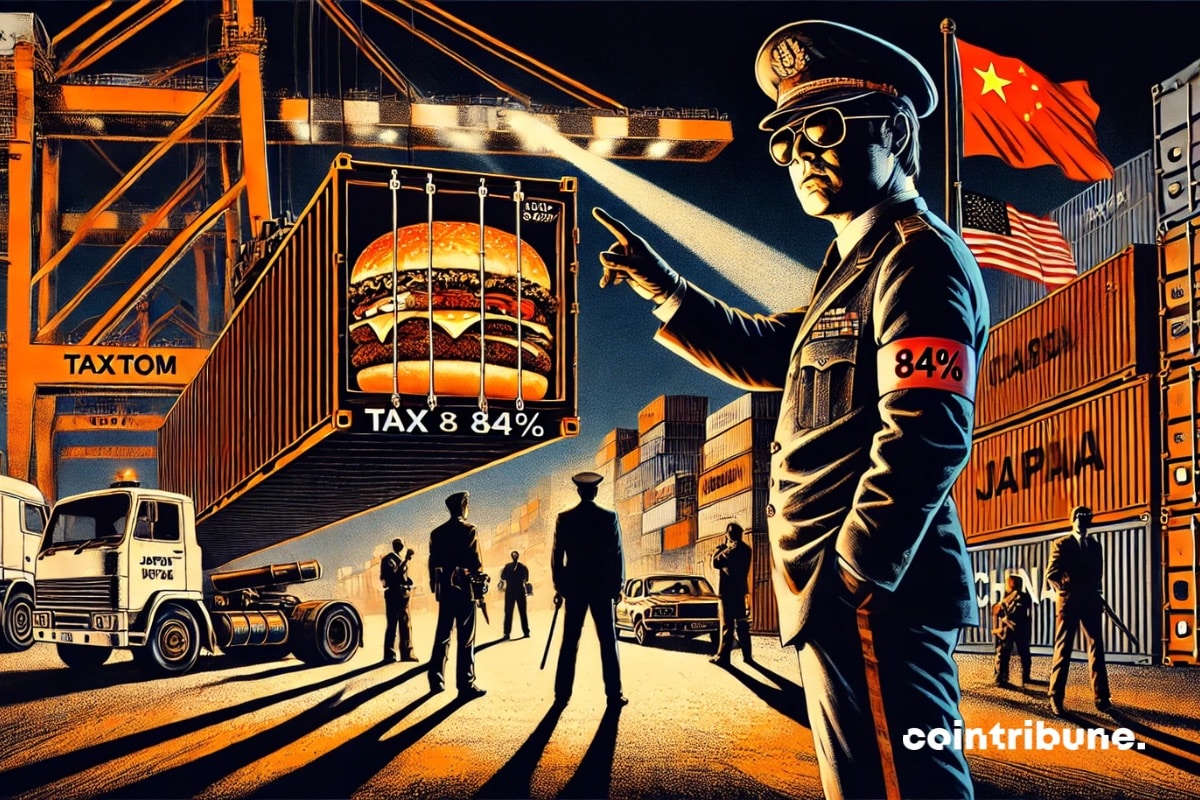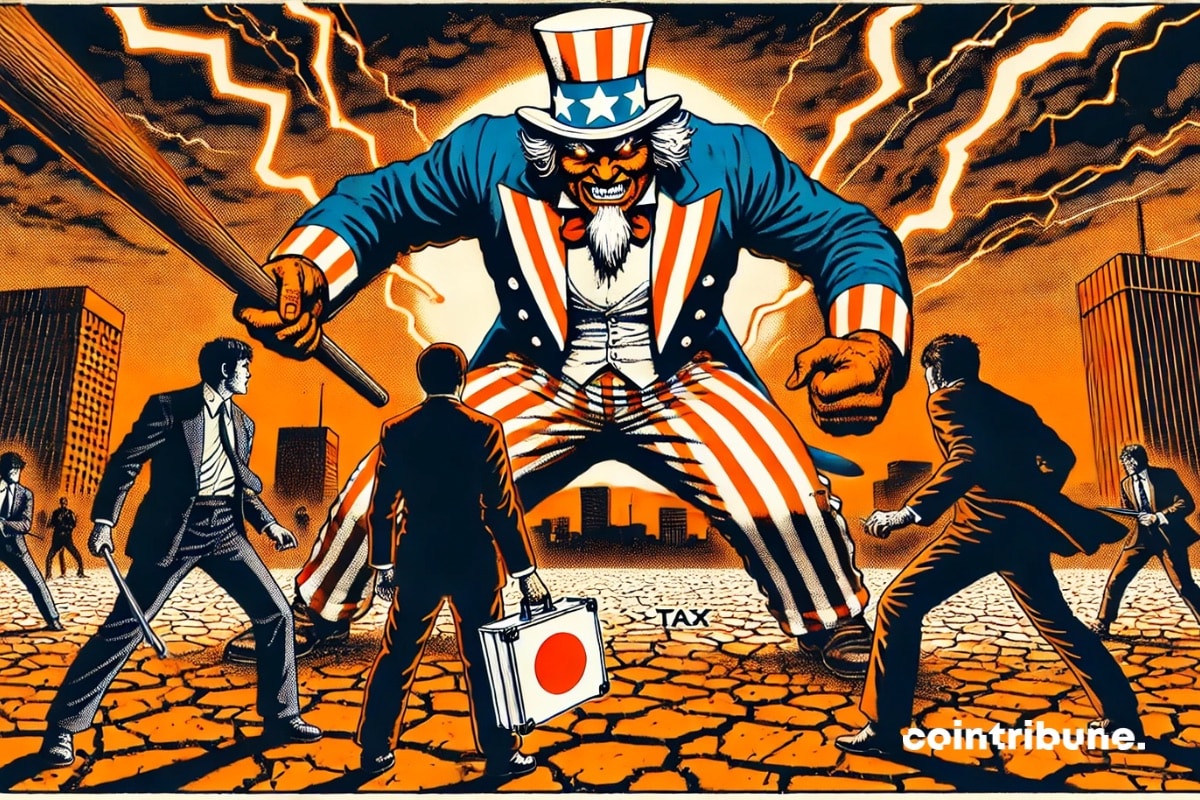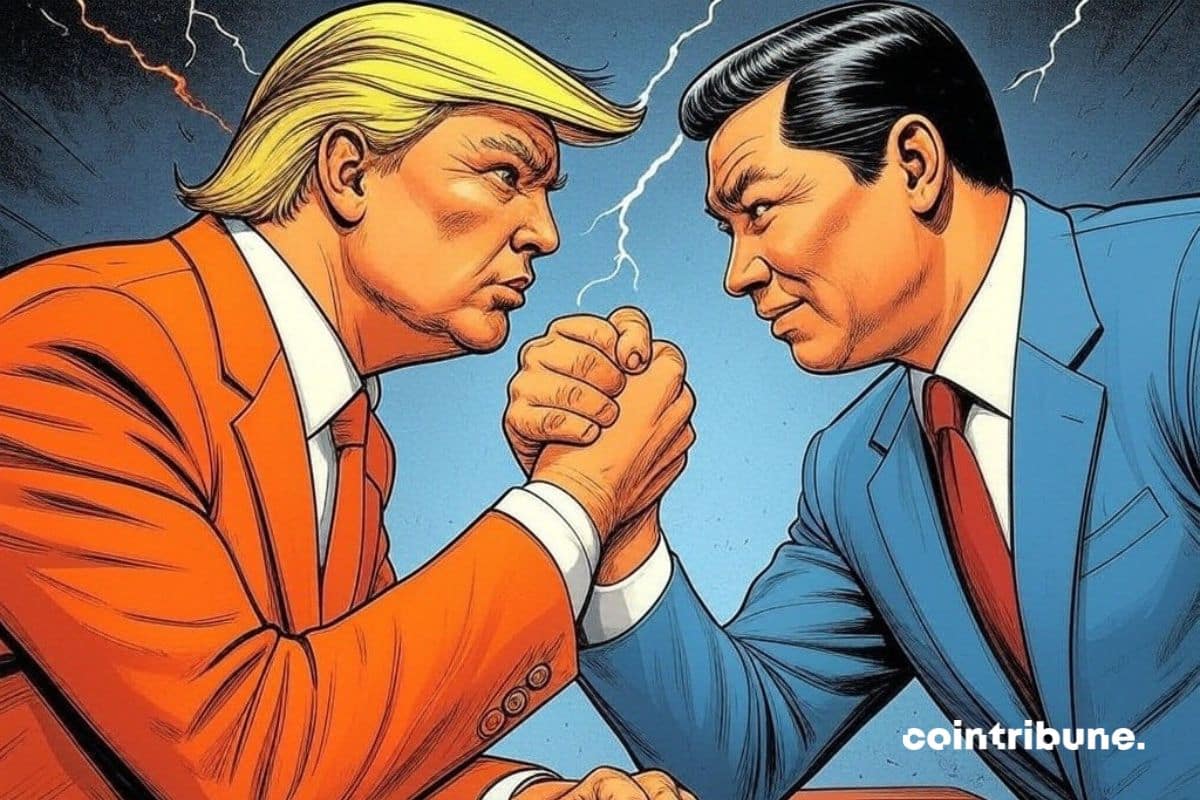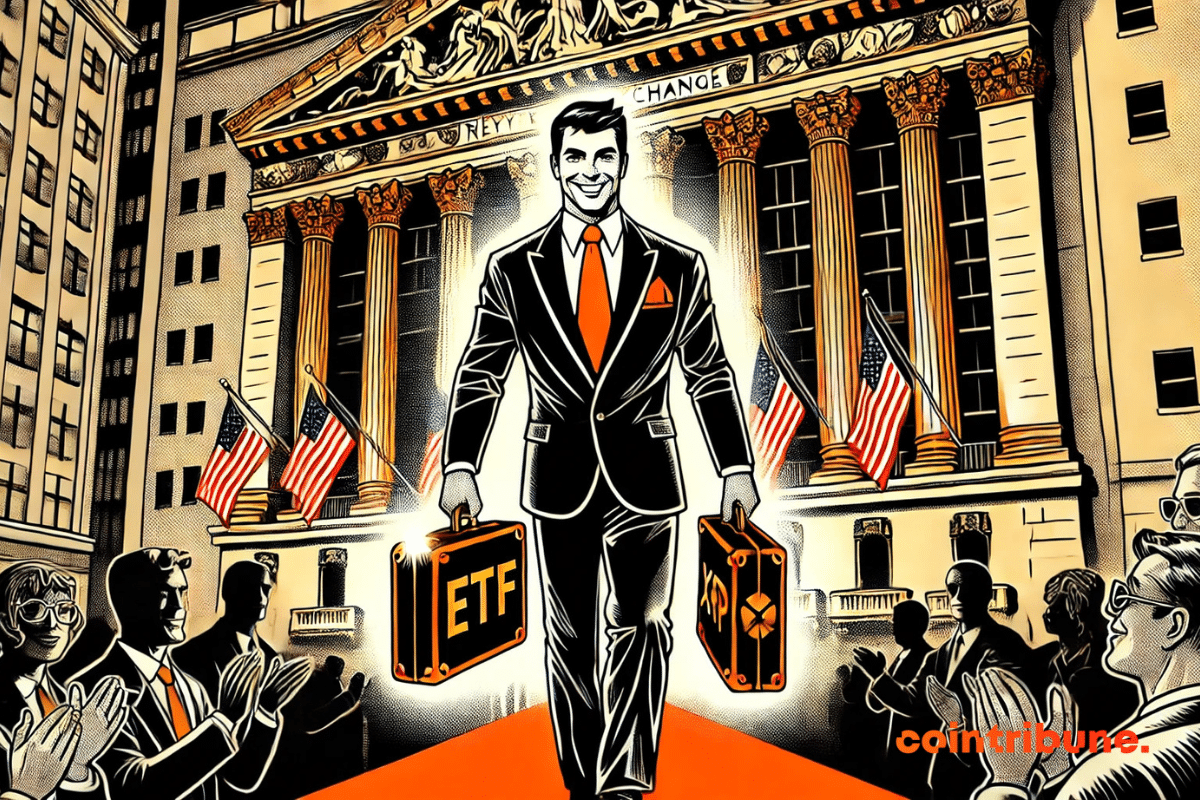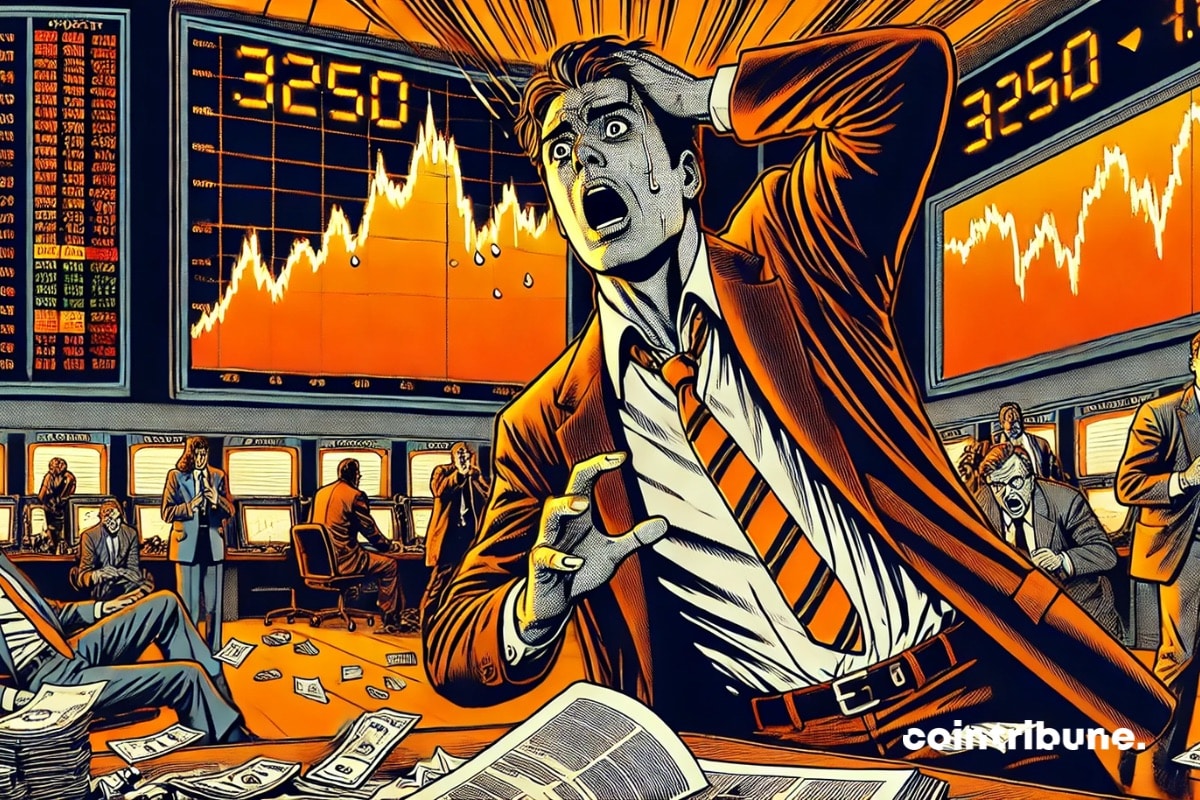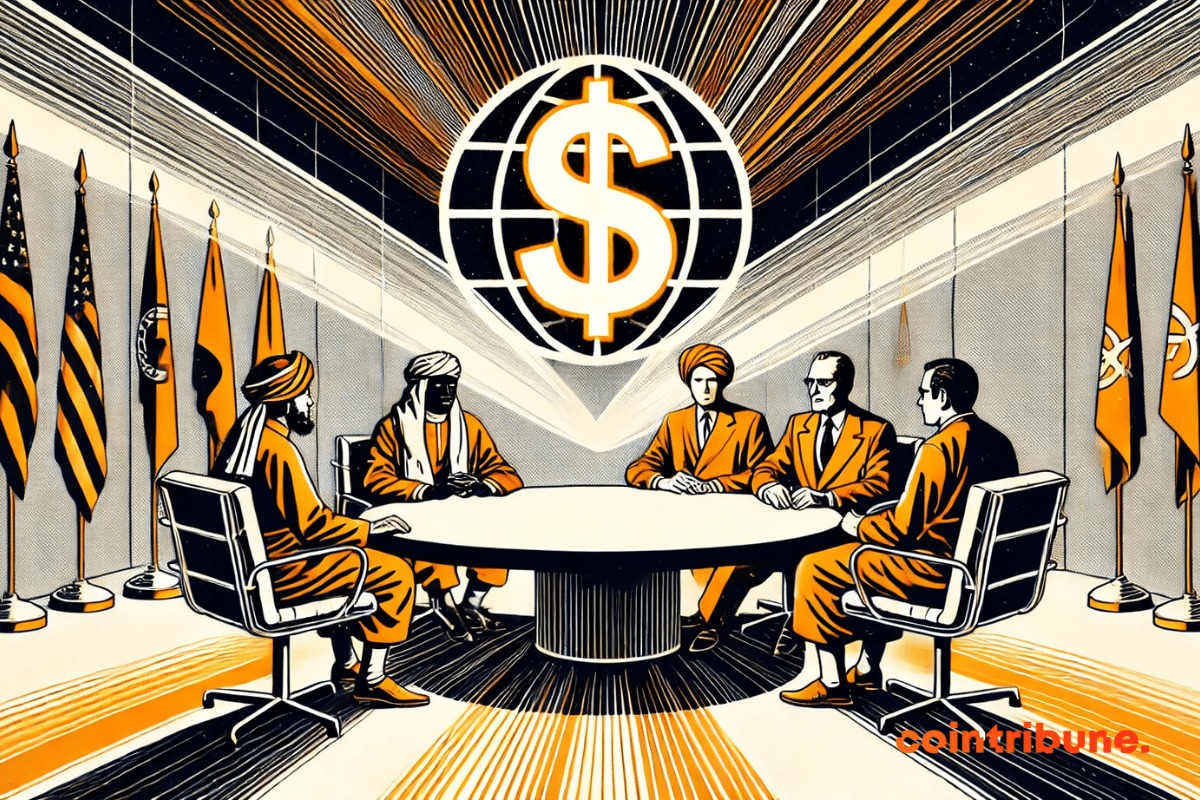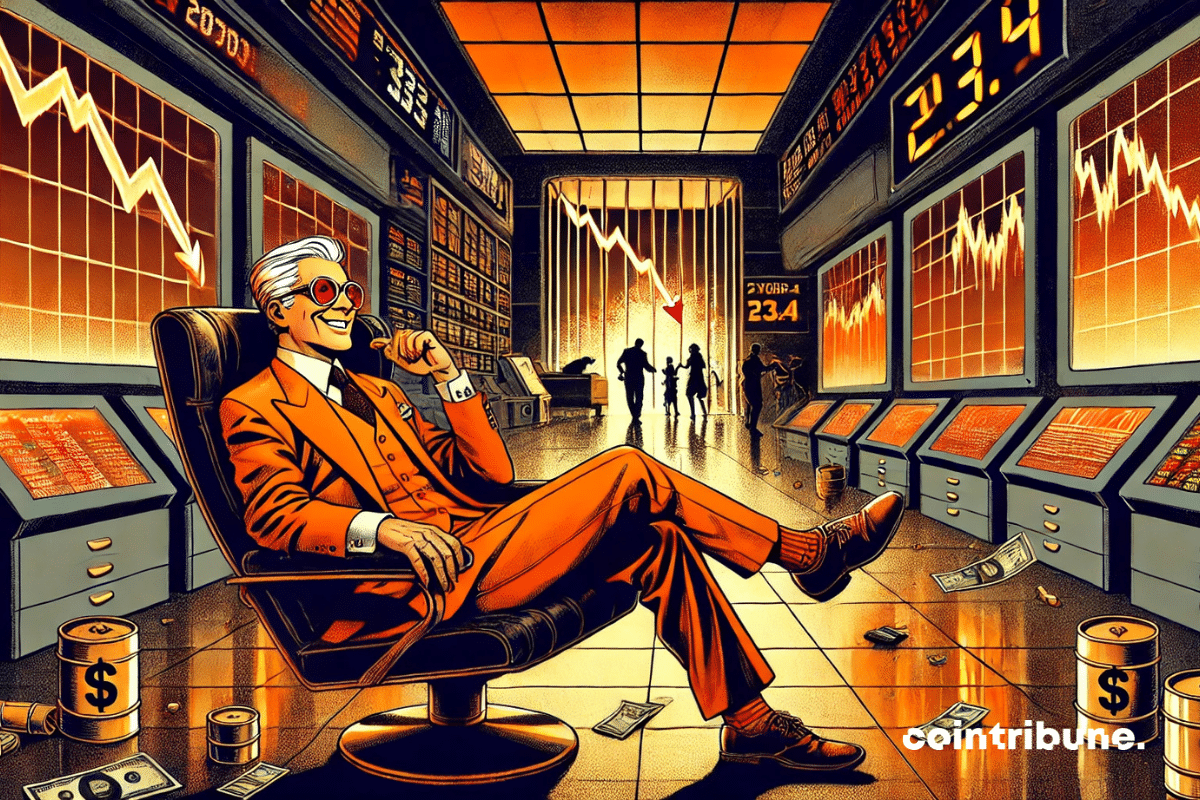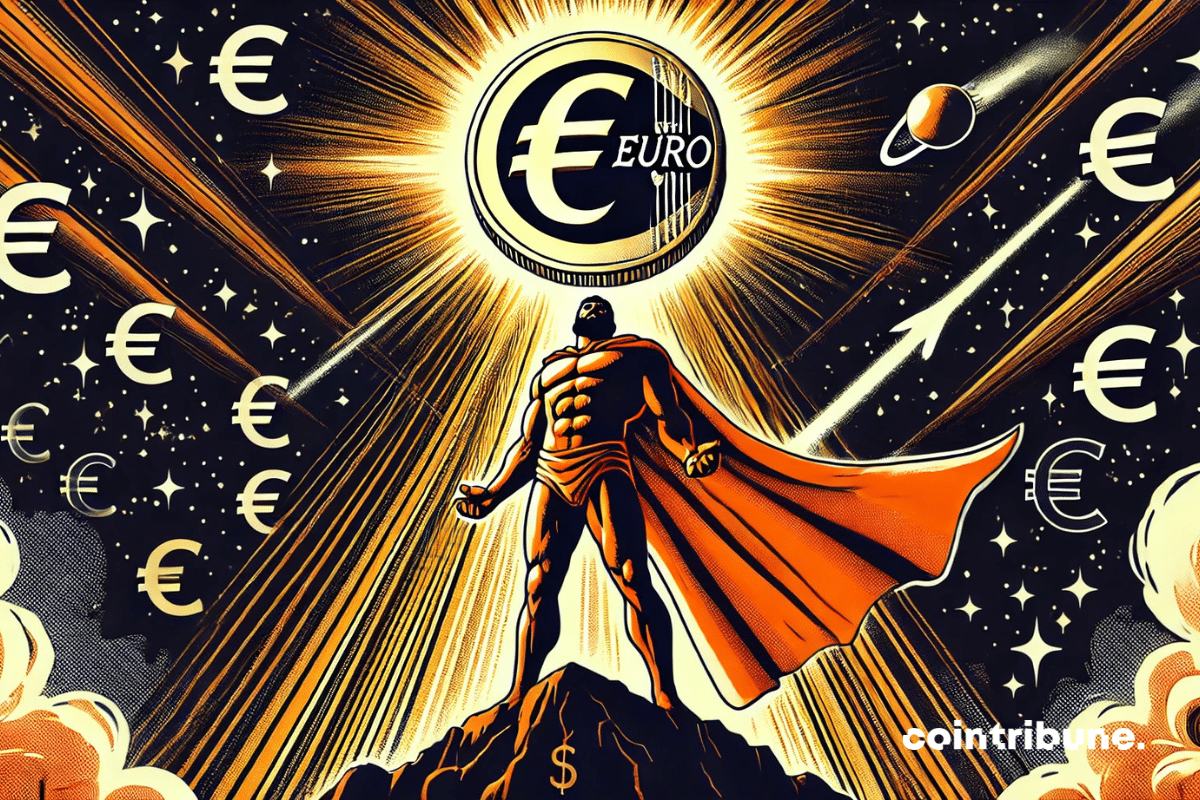As the crypto market wobbles under macroeconomic turmoil, Ethereum plunges into an unprecedented zone since March 2020. A historic signal awakens, but do investors still dare to believe in it?
Finance News
The surprising decision by U.S. President Donald Trump to temporarily suspend reciprocal tariff rights has quickly reassured the markets and reduced the prospects of an economic recession.
As the trade war between the United States and China threatens the global balance, bitcoin is gradually emerging as the next international reserve currency.
Long suppressed by regulations deemed hostile, the American crypto industry may be on the brink of a major turnaround. Indeed, Donald Trump's return to the White House is accompanied by a clear shift in direction: to make the United States a bastion of financial technologies. An unprecedented discourse is taking root at the top of the state, driven by a desire to break away from the Biden era. Behind the announcements, a strategy is taking shape, promising a new momentum for cryptos and a rehabilitation of the sector in the eyes of regulators.
As the BRICS intensify their dedollarization strategy, Beijing and Moscow are taking an unprecedented step: using bitcoin to settle certain trade transactions. This initiative, revealed by VanEck, marks a symbolic turning point in the internationalization of cryptocurrencies. It reflects a clear intention to break free from financial circuits dominated by the West, aiming to give bitcoin a new geopolitical role. This shift could herald a new monetary order in which cryptocurrencies redefine the levers of economic sovereignty.
Blockchain in decline? Developers are abandoning the crypto space at an alarming rate. We provide all the details in this article!
China announced on April 9 a dramatic increase in tariffs on American products, which will rise to 84% starting April 10, 2025 at 12:01 AM. This decision is a direct response to Donald Trump, who had raised tariffs on Chinese imports to 104% the day before!
A new trade tension is shaking relations between Washington and Tokyo. Donald Trump's recent decision to impose massive tariffs on Japanese products is causing a shockwave. Japan is reacting, setting up a delegation, and trying to contain the crisis before it worsens.
Europe believed it had locked down cryptocurrencies with MiCA. ESMA sets the record straight: too many gateways, too many risks. When tokens cough, finance could catch a cold.
Global trade is wobbling under the effect of a new escalation between Washington and Beijing. Donald Trump is reigniting the tariff offensive against China, rekindling a trade war that marked his previous term. Beijing, far from backing down, is deploying a firm response, determined to defend its strategic interests. This renewed showdown between the two superpowers resonates well beyond customs, threatens global economic balances, and stirs tensions in international markets. A confrontation whose implications could be felt well beyond American and Chinese borders.
In a move that further intensifies the economic tensions between Donald Trump and China, the White House announced the imposition of an additional 104% tariffs on Chinese imports. This measure comes after China has evidently maintained its own 34% duty on American exports.
The Securities and Exchange Commission (SEC) announced a roundtable titled "Between a Block and a Hard Place: Tailoring Regulation for Crypto Trading" on April 11, 2025, in Washington, D.C. This event will bring together key figures from the crypto industry and traditional finance to discuss the development of a regulatory framework tailored to crypto trading.
Global stock markets regained some stability on Tuesday after three days of historic turbulence, despite worsening trade tensions triggered by Donald Trump's new protectionist measures.
Wall Street opens its doors to XRP. Teucrium Investment Advisors is set to launch the very first ETF backed by Ripple's native asset on American soil. A leveraged product, with no direct holdings, which reflects the growing desire of traditional financial markets to capture the volatility (and potential profits) of the crypto ecosystem. While the industry is still waiting for the green light for a spot XRP ETF, this launch sounds like a strategic accelerator.
Pakistan, often seen as a sleeping economic giant, seems determined to rewrite its financial destiny. In a masterstroke strategic move, the country has just appointed Changpeng Zhao (CZ), former CEO of Binance, as a key advisor to its Crypto Council (PCC). This bold, almost provocative decision reflects how he embodies both the promises and the turbulence of the crypto ecosystem. While the rupee wavers and capital flees, Islamabad is counting on digital assets to reshape its economic landscape.
Donald Trump reignited trade tensions with China on Monday, April 7, by threatening to impose "additional" tariffs of 50% on Chinese products. This new escalation would occur as soon as April 9, if Beijing does not reverse its decision to retaliate against the U.S. customs offensive. China had indeed announced an increase of its own tariffs to 34% on American imports, effective April 10.
A new trade confrontation is beginning between the two shores of the Atlantic. Through the announcement of a 20% tariff on all European products, Washington directly targets exports from the Old Continent. France, on the front line, faces the threat of a major economic shock. Between the vulnerability of strategic sectors and diplomatic urgencies, Paris must react quickly. Behind this American decision lies much more than a tariff battle: the entire architecture of transatlantic trade relations is at stake.
After a bleak week, the CAC 40 fell by 8%, shaken by the trade war, market volatility, and grim economic outlooks, with a rebound still uncertain.
The highly anticipated launch of the REAL token, backed by former UFC champion Conor McGregor, has faced a crushing failure. Despite significant media buzz, the sealed auction launched on April 5, 2025, did not meet the financial targets set. The project led by Real World Gaming (RWG) failed to raise the necessary funds, and the team is forced to reimburse the crypto investors.
As clouds gathered over the crypto landscape, a lightning bolt split the sky: Ethereum, an indispensable pillar, lost 14% of its value in 24 hours. A brutal drop, amplified by the liquidation of an Ethereum whale for $106 million on Sky, the DeFi platform rebranded in August. Behind these numbers lie cold mechanisms, ruthless mathematical ratios, and a chain reaction cruelly reminiscent of the fragility of decentralized ecosystems. What if this debacle reflected a market still too sensitive to geopolitical shocks, such as Donald Trump's recent customs announcements? A deep dive into the guts of algorithmic carnage.
Trump's new taxes destabilize the markets. What are the consequences for the American economy? The full analysis here!
The Trump administration has just triggered a real commercial earthquake. Through the imposition of a universal customs tax of 10%, soon raised to 34% for certain countries, Washington is reviving an aggressive protectionist strategy. This decision, counter to multilateral rules, threatens to reconfigure global trade and is already prompting reactions from more than 50 states. In a tense international context, this major shift could well mark the beginning of a new era of economic confrontation.
Numbers are plummeting, volumes are exploding, and institutional investors are quietly slipping away. Bitcoin ETFs may be entering this pivotal moment where silence speaks louder than words.
Cryptocurrency is no longer a marginal experience. It is now embedded in the daily lives of millions of Americans, reshaping the contours of their financial autonomy. A recent study by the National Cryptocurrency Association reveals that 55 million adults hold digital assets. Among them, 76% believe that this technology has improved their quality of life. Far from clichés about speculation, these figures unveil a more nuanced reality: massive, pragmatic adoption, and a source of concrete hopes.
As the American economy wobbles, Donald Trump secures a strategic victory in the Senate with the unlocking of a controversial budget. Behind this success lies a political clash with global repercussions. For both investors and crypto players, this vote opens an uncertain sequence that could redefine financial balances and impact the trajectory of markets.
A historic day on Wall Street: on April 4, 2025, American markets lost $3.25 trillion, more than the total market capitalization of crypto. This brutal drop, triggered by tariff measures from Trump, reveals a deep crisis. Bitcoin, however, endures. An analysis of an economic shift.
In a geopolitical context undergoing a major reshuffle, two significant initiatives are shaking the hegemony of the dollar. Brazil and China are making a strategic shift by favoring their national currencies for bilateral exchanges. For their part, Russia and Iran are announcing the launch of a new common currency to circumvent Western sanctions. These distinct yet converging movements illustrate a shared desire among influential BRICS members: to build a financial system that is less dependent on the greenback and to assert monetary sovereignty in the face of external pressures.
In a global market in complete chaos, Warren Buffett stands out as an exception. While the richest fortunes are recording massive losses, the American investor makes 23.4 billion dollars in just a few months. This performance contrasts with the general trend and raises the question: how does the oracle of Omaha manage to thrive where so many others falter? At the head of Berkshire Hathaway, he once again demonstrates that discipline, foresight, and rigorous management can still dictate the rules, even in times of instability.
In a single session, the euro surged 2.15% against the dollar, reaching $1.109, its largest increase since 2015. This abrupt jump exceeds the mechanics of exchange rates. It signals a sudden loss of confidence in the American currency. Through this shift, markets appear to be reassessing the balance of power among major currencies, in a context where macroeconomic signals and central bank choices are redefining monetary fault lines.
In a single session, the euro surged 2.15% against the dollar, reaching $1.109, its largest increase since 2015. This sharp rebound goes beyond the mechanics of exchange rates. It signals a sudden loss of confidence in the American currency. Through this shift, markets seem to be reevaluating the balance of power between major currencies, in a context where macroeconomic signals and the choices of central banks are reshaping the lines of monetary fracture.






